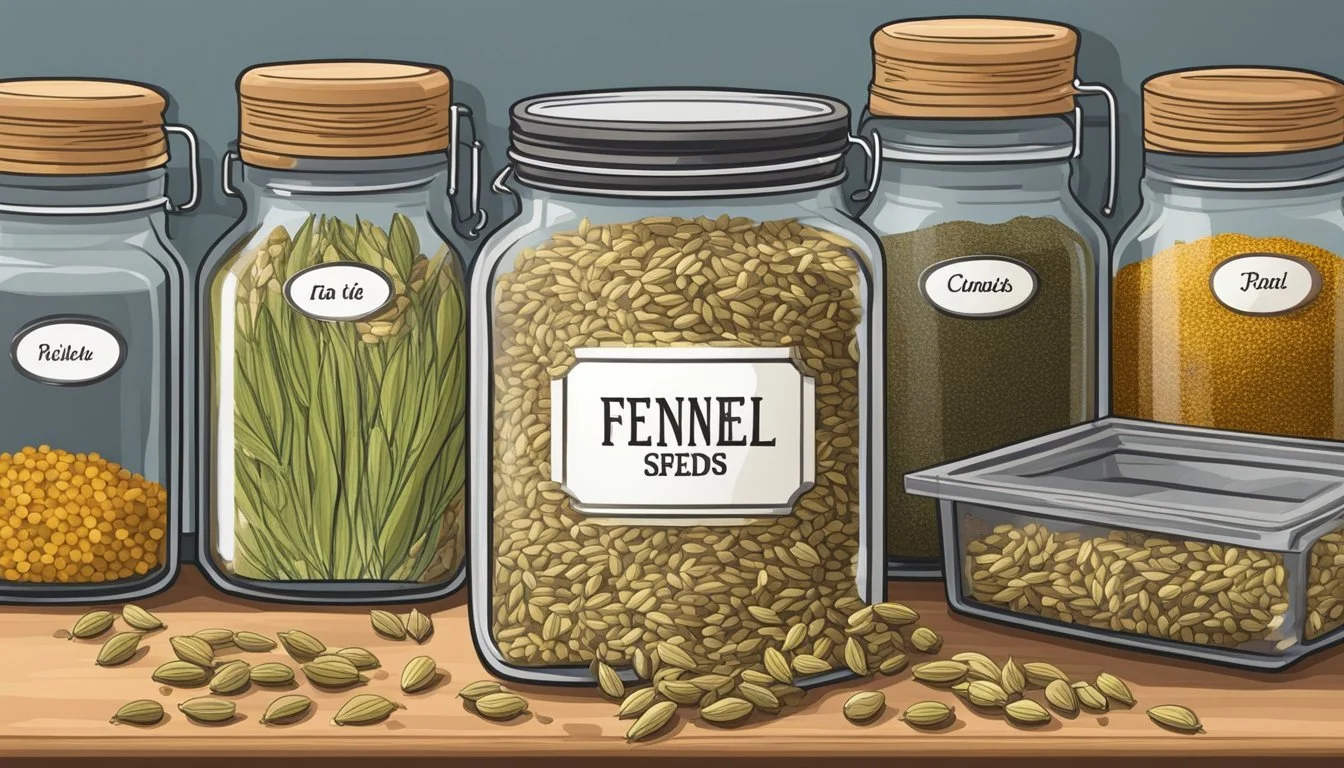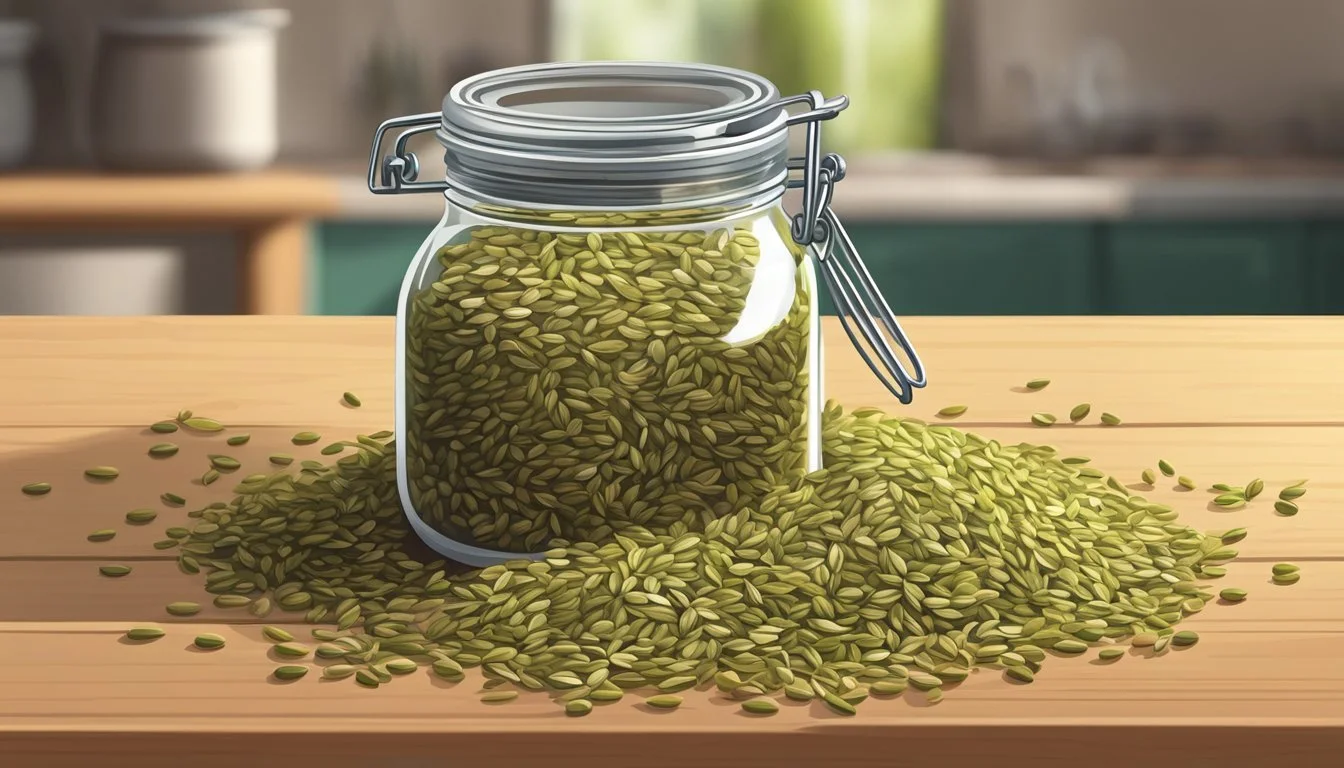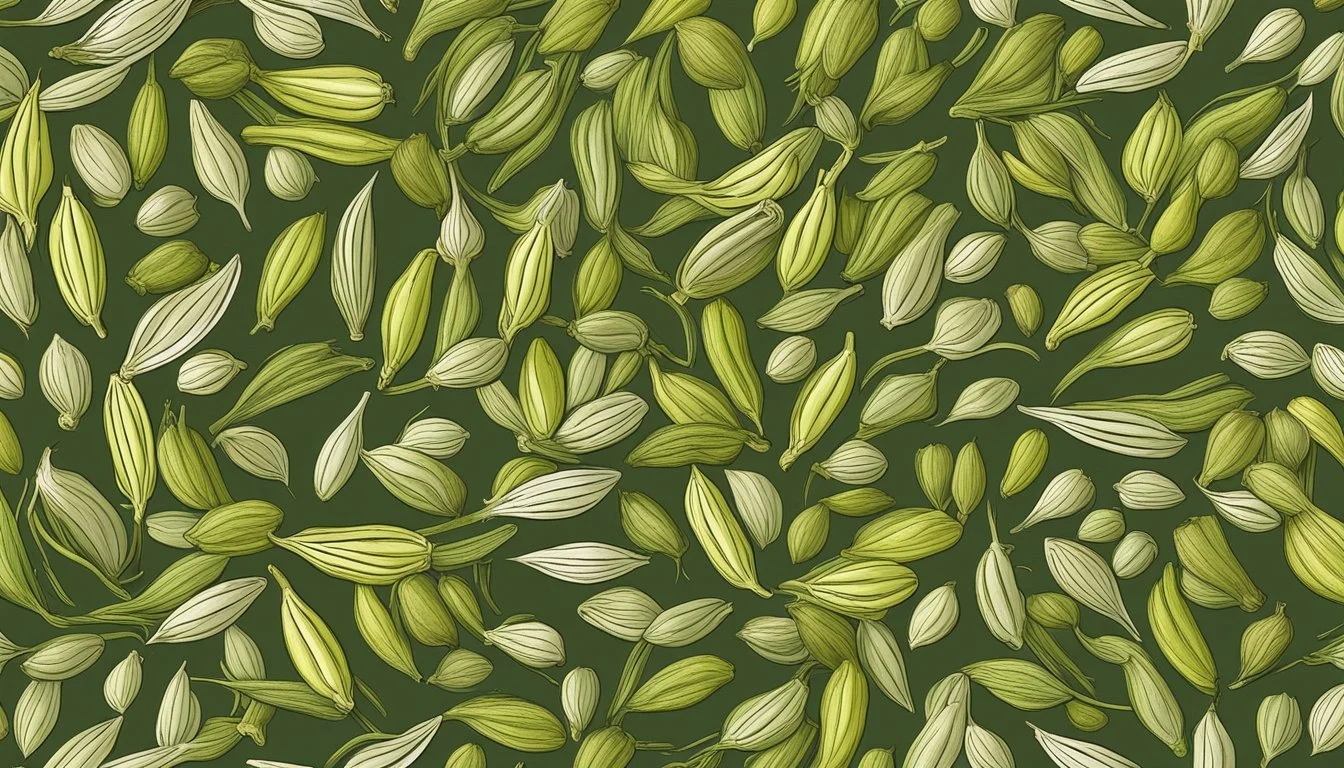Do Fennel Seeds Go Bad? Understanding Shelf Life and Storage
Fennel seeds, a staple in Mediterranean cuisine, are cherished for their distinctive anise-like flavor that adds warmth to various dishes. Often used as a spice, these seeds are integral in both cooking and herbal remedies. With proper storage, fennel seeds can last up to about four years while retaining their quality.
Fennel seeds do not necessarily go bad in the traditional sense; rather, they lose their potency over time. While they might still be safe to consume after their peak, the flavor and aroma will diminish, impacting their effectiveness in recipes. To maintain their freshness, it's crucial to store them in a cool, dry place away from direct sunlight.
Recognizing when fennel seeds have aged is relatively straightforward. Fresh fennel seeds are pale green, whereas older seeds turn a greyish-brown. Keeping them in optimal conditions ensures that their unique taste can continue to elevate your cooking and herbal applications for an extended period.
Understanding Fennel Seeds
Understanding fennel seeds begins with their origin, culinary uses, and nutritional profile. It includes a comparison with other common herbs.
Botanical Profile and Culinary Uses
Fennel (Foeniculum vulgare) is a perennial herb with a light, anise-like flavor. Its seeds are used mainly as a spice in cooking. This herb is common in Mediterranean cuisine and enhances soups, stews, and fish dishes.
Fennel seeds add a mild licorice-like flavor to dishes. They are often toasted to release aromatic oils and used whole or ground as a seasoning. Fennel seeds are also popular in teas for their digestive benefits.
Nutritional Content
Fennel seeds are rich in important nutrients. They provide dietary fiber, which aids in digestion. They also contain several essential minerals like iron, calcium, and potassium.
The seeds have antioxidant and anti-inflammatory properties, largely due to their high content of vitamin C and other beneficial compounds. This nutritional profile supports overall health, contributing to various bodily functions.
Comparison with Other Herbs
When comparing fennel seeds to other herbs, they stand out due to their unique flavor and versatility. Unlike dill and sage, fennel seeds have a sweeter, licorice-like taste.
Coriander and mint offer distinct flavor profiles more suitable for different culinary applications. Anise shares a similar taste with fennel but tends to be stronger. This places fennel seeds as a complementary spice in many diverse dishes.
Storage Tips for Optimal Freshness
Proper storage techniques can significantly extend the shelf life and maintain the freshness of fennel seeds. Key factors to consider are the storage environment, refrigeration and freezing options, and the types of packaging used.
Choosing the Right Environment
Temperature: A cool environment is critical for storing fennel seeds. Temperatures around or below 42°F (5.6°C) are ideal. Excessive heat can cause the fennel seeds to lose their potency and nutritional value.
Humidity: Keep humidity levels low to prevent moisture from affecting the seeds. High humidity can lead to mold growth and spoilage. Aim for a dry setting where moisture can't penetrate.
Light Exposure: Store fennel seeds in a dark place. Light can accelerate the degradation of essential oils in the seeds, reducing their overall freshness and flavor.
Location: Choose a location that's consistently cool and dry, such as a pantry or a dedicated storage area. Avoid places near ovens, stoves, or windows where temperature fluctuations are common.
Refrigeration and Freezing
Refrigeration: While not always necessary, refrigeration can be used to extend the freshness of fennel seeds, especially in hot climates. Place them in an airtight container to keep moisture out. This helps maintain their flavor and viability for a more extended period.
Freezing: Freezing is another effective method for long-term storage. To freeze fennel seeds, use a freezer-safe, airtight container or a heavy-duty plastic bag. Make sure the seeds are dry before freezing to prevent ice formation. Frozen fennel seeds can maintain their freshness and potency for up to one year.
Thawing: When ready to use, allow frozen seeds to thaw at room temperature. Avoid exposing them to moisture during this process to prevent any potential spoilage.
Packaging and Containers
Airtight Containers: Using sturdy, airtight containers is essential. Glass jars with tight-fitting lids or high-quality plastic containers can protect fennel seeds from moisture and air, essential for maintaining their freshness.
Plastic Bags: Heavy-duty, resealable plastic bags are also an option. Ensure that all the air is squeezed out before sealing to minimize exposure to air and moisture.
Paper Towels: For added protection, consider placing a dry paper towel inside the container or bag. This can help absorb any excess moisture that might inadvertently get inside, further preserving the seeds' quality.
Labels and Dates: Always label containers with the storage date. This helps keep track of their shelf life and ensures that older seeds are used first. Proper labeling and dating are beneficial in maintaining a well-organized pantry.
These storage practices can effectively prolong the shelf life and retain the freshness of fennel seeds, making them a reliable and flavorful ingredient in your culinary endeavors.
Signs of Deterioration
Detecting signs that fennel seeds have gone bad involves observing their appearance, texture, aroma, and presence of mold. Proper identification helps ensure the seeds maintain their quality and flavor.
Visual and Textural Changes
Appearance and Color: Fresh fennel seeds have a vibrant green hue. As they age, they transition to a greyish-brown color. An altered color indicates potential spoilage.
Firmness: Healthy seeds are firm to the touch. If they crumble easily or feel excessively dry, it's a sign they've likely degraded.
Visual Damage: Look for shriveled seeds or any that appear unusually damaged. Such seeds are not suitable for culinary use.
Aroma and Flavor Alteration
Smell: Fennel seeds should emit a pleasant, sweet, anise-like aroma, similar to licorice. A musty or rancid smell indicates the oils within have spoiled.
Flavor: Over time, the flavor can fade. If the seeds no longer have a noticeable taste or if the taste is off, they are likely past their prime.
Texture: The seeds' texture can become dry and brittle, further affecting their flavor profile.
Mold and Spoilage
Mold Presence: The appearance of mold on fennel seeds is an unmistakable indicator of spoilage. Mold can appear as white, green, or black spots.
Spoilage Signs: Look for any signs of unusual growths or moisture. These are clear indicators the seeds are no longer safe to use.
Smell Check: Besides a rancid odor, moldy seeds might emit a particular pungent smell, further confirming spoilage.
Maximizing Fennel Seeds' Shelf Life
To extend the shelf life of fennel seeds, key factors such as storage conditions and the impact of heat and light must be carefully managed. This ensures that the seeds maintain their flavor, aroma, and potency for as long as possible.
Proper Storage Practices
Proper storage is crucial for preserving fennel seeds. They should be kept in an air-tight container to minimize exposure to air, which can oxidize the essential oils. Using glass jars with tight-sealing lids is ideal.
A cool and dry environment is optimal. Storing the seeds in a drawer, cupboard, or pantry away from the stove or windows reduces the risk of heat and light damage. The temperature should be around or lower than 42°F (5.6°C). High humidity can also accelerate spoilage, so a dry place is essential.
Whole fennel seeds have a longer shelf life compared to ground seeds. Whole seeds can last up to 3-4 years, while ground seeds generally last about a year due to their increased surface area. Labeling containers with purchase dates helps in monitoring freshness.
The Impact of Heat and Light
Heat and light significantly impact the quality of fennel seeds. Direct sunlight can degrade the essential oils, leading to a loss of flavor and aroma. This is why it's important to store them in a dark place, away from windows and natural light.
Elevated temperatures can also affect the potency of fennel seeds. Avoid placing the seeds near heat sources such as ovens, stovetops, and microwaves. Excessive heat speeds up the deterioration process, reducing the shelf life substantially.
Maintaining consistent, cool temperatures and keeping the seeds away from light ensures they retain their best qualities. By understanding these factors, one can effectively maximize the longevity of fennel seeds for culinary use.
The Lifespan of Fennel Seeds
Fennel seeds can maintain their quality and potency for varying periods depending on storage conditions. Key indicators include changes in aroma, flavor, and appearance.
Typical Shelf Life
Whole fennel seeds, when stored in optimal conditions—cool, dry, and dark places—can last between 3 to 4 years. This is due to their lower surface area which minimizes exposure to air and moisture.
Ground fennel seeds have a significantly shorter lifespan, typically around a year. Their increased surface area makes them more prone to oxidation and loss of flavor and aroma.
Storing fennel seeds in airtight containers and possibly even in the freezer can further extend their shelf life. Conditions similar to those in the Global Seed Vault at approximately 0°F (-18°C) are ideal.
Indicators of Freshness
Fresh fennel seeds should have a strong, licorice-like aroma and retain their natural greenish-brown color. When the seeds go bad, they often lose this distinctive smell and become bland.
Changes in texture, such as a rubbery or overly dry feeling, can also signal that the seeds have expired. A rancid smell is another clear indicator that fennel seeds are no longer fresh.
To test the potency, crush a few seeds between your fingers. Their aroma and flavor should be immediate and robust, indicating that they are still good to use.
Health Benefits and Uses
Fresh fennel and fennel seeds offer numerous health benefits. They have a rich nutrient profile and can be used in various ways to enhance well-being and culinary experiences.
Digestive and Immune Support
Fennel seeds are known for their digestive benefits. They contain dietary fiber that aids in digestion, reduces bloating, and prevents constipation. Chewing fennel seeds after meals is a traditional practice to improve digestive health.
Additionally, fennel's essential oils possess anti-inflammatory properties. This can help soothe the gastrointestinal tract and reduce inflammation.
The seeds also support the immune system. They are rich in antioxidants, which combat free radicals and protect the body from infections.
Bone Health and Weight Loss
Fennel seeds contribute to bone health. They are a good source of calcium, which is essential for maintaining strong bones. Regular consumption of fennel seeds can help prevent bone-related disorders.
When it comes to weight loss, fennel seeds can be beneficial. They have high fiber content, which promotes satiety and reduces appetite. This can aid in weight management by decreasing overall calorie intake.
Beyond Cooking: Other Uses
Fennel seeds are not just for cooking. Their essential oils are used in aromatherapy to provide a calming effect. The pleasant aroma helps alleviate stress and improve mood.
In addition, fennel seeds have been used in traditional medicine. They can be used to prepare herbal teas that aid in digestion and relieve coughs. Their natural diuretic properties also help in detoxifying the body.
Fennel seeds are versatile and can be integrated into various aspects of daily life, offering both culinary and medicinal benefits.








